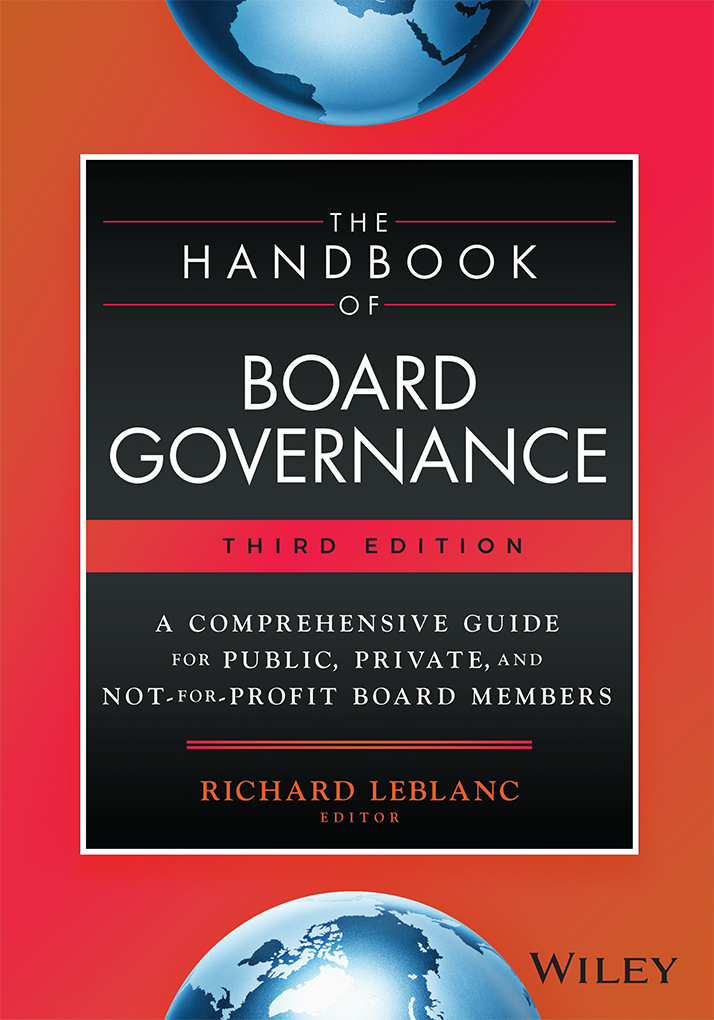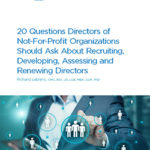Charlie Munger, Vice-Chairman of Warren Buffett’s Berkshire Hathaway, once said “As for corporate consultants who advise [boards of directors] on salary, all I can say is that prostitution would be a step up for them.”
Compensation consultants are widely regarded as not being independent and beholden to management for the bulk of their professional services. Therein lies the problem.
Boards need professional advisors who are accountable to boards and not management. They need auditors, lawyers, compensation consultants and search firms. However, these advisors have varying degrees of professionalism and oversight of conflicts of interest. Lawyers and accountants, for example, have very detailed rules of professional conduct. So do management consultants. See here, here and here. North American compensation consultants do not appear to have an industry code of conduct or performance standards.
Enron and WorldCom – and its legislative aftermath known as “Sarbanes Oxley” – fundamentally changed the relationship between auditors and audit committees. Auditors are now accountable directly to audit committees, not management or the CFO, to recommend to shareholders approval of financial statements of the company. Auditors may not engage in what is known as “non-audit” services to management, without permission, as doing so compromises integrity of the audit and accountability by the auditor to the audit committee.
The global financial crisis – and its legislative aftermath known as “Dodd Frank” – is similarly changing the relationship between compensation consultants and compensation committees. Consultants are now accountable directly to compensation committees, not the CEO, to recommend to shareholders the approval of executive compensation. Similarly, compensation consultants should not engage in “non-compensation” services to management, without permission, as doing so compromises their accountability to the compensation committee. But many consultants do. Their firms perform services for both management and the board, and doing so compromises the ability to do the best job for both.
Lawyers and accountants cannot act for two parties whose interests have the capacity to become adverse. A husband and a wife in a divorce; a vendor and a purchaser in a sale; and yes a CEO and a board in pay negotiations – all have potentially adverse interests, particularly if the professional is doing his or her job properly.
Respecting confidentiality, managing conflicts of interests, and the ability to advocate for one’s client, are the hallmarks of a profession.
Compensation committees and boards should insist on an industry-wide rigorous code of conduct for compensation consultants ~ that is independently drafted and enforced; that is publicly accessible; and to which all compensation consultants who advise these compensation committees subscribe.
The “Code of Conduct for Compensation Consultants” should be detailed, as are codes for lawyers and auditors. It should address specifically the following areas: the organization of a professional practice; relations with other firms and members; duties and obligations to your client; conflicts of interest; confidentiality (including privacy walls); competency and quality assurance; fees and retainers; monitoring and discipline; and, most importantly, objectivity, independence and integrity.
Compensation consulting firms and the industry as a whole have a choice – indeed they have a leadership and business development opportunity. They can professionalize themselves, collectively, collegially and independently, or governments eventually may do it for them. They may not like the unintended consequences of the latter.
Posted by Richard Leblanc on Dec 16, 2011 at 5:41 pm in CEO, Organizational Performance and Compensation, Performance and Evaluation |












